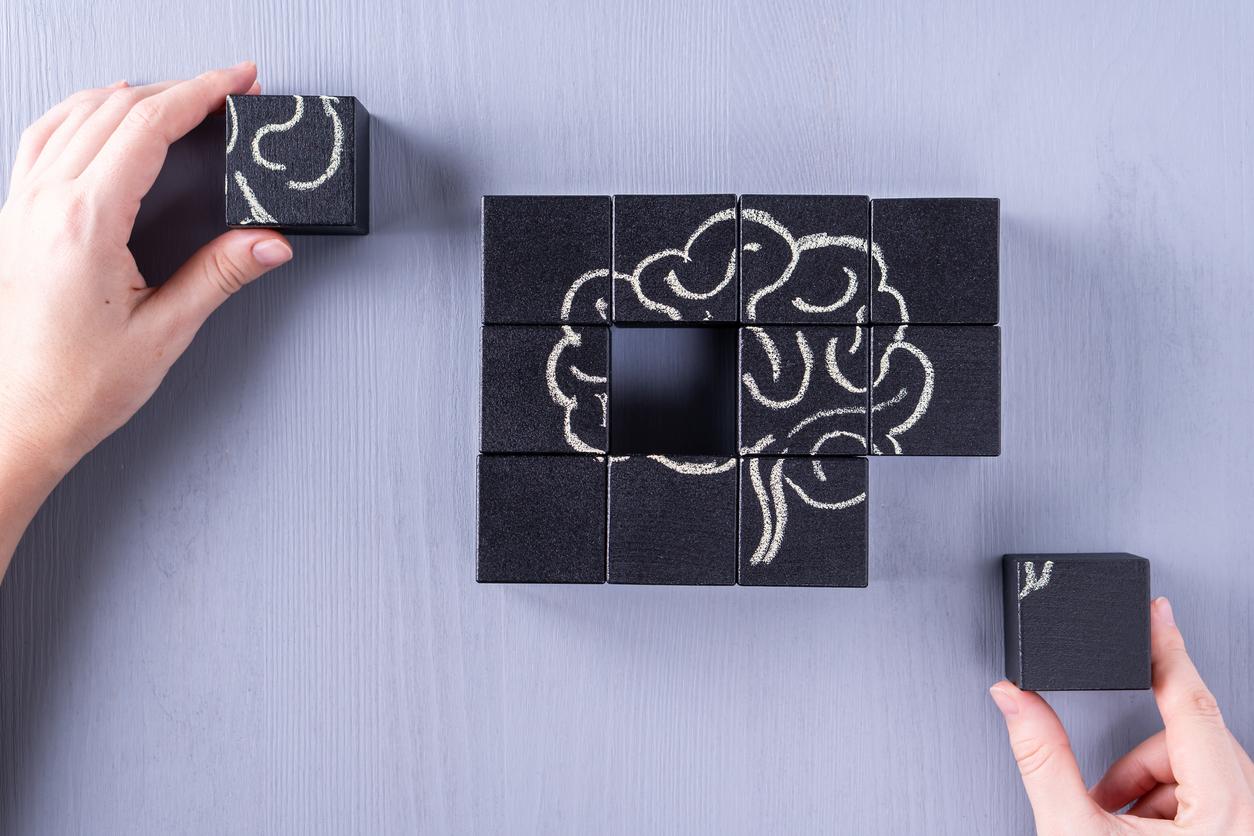Do we really know the origin of pain and disease? Why do they appear in some, but not in others? Christian Flèche, founder of the biological decoding of diseases, claims that they are the result of our mental illnesses. Explanations.

Who can say why two people exposed to the same risks do not develop the same disease? Why do some heal faster than others? Do we really know what disease is and why it occurs? Is it possible that the scientific community still has too impersonal an approach to the disease to understand its full origin?
We met Christian Arrow, former nurse and founder of biodecoding of diseases, a therapeutic approach which consists in analyzing the biological origin of the manifestation of a disease, a handicap or a physical pain. Calm, sweet, sipping his tea at the table of a Parisian brasserie, he explains to us that the disease is not, contrary to popular belief, “a physical ill-intentioned manifestation”. Either way, not something as negative as we think. “The disease has a positive intention. It is just a healthy reaction of the body. When I eat something stale for example, or drink too much alcohol, I will throw up. It is a healthy adaptation reaction. of the body defending itself. This is not a problem, it is a solution “. According to him, the human body has a great capacity to adapt to its environment.
Biological decoding therapy
Illness and pain are therefore the physical manifestations of a deeper psychological illness (psychological suffering, stress, trauma, etc.). Thanks to them, the body would express what our mouth has never said or our brain, never healed. “In biological decoding, we seek by discussing with the person concerned and based on his symptoms, the precise event that has occurred in his life which may have triggered the pain or the disease. We isolate the motor event”. Like, for example, the feeling of stress which physically triggers stomach cramps, cold sweats, nausea and which would even be a trigger for Parkinson’s disease.
Each physical illness would therefore be associated with a psychic illness, the trick is to find it. “When they understand where their disease comes from, what their body wants to tell them, 10% of people recover. But in the majority of cases, it is necessary to deepen the therapy to find the specific event that triggered this symptom- there “, explains Christian Flèche, illustrating his point with examples:” for the liver, it is lack. The tendency to do everything quickly, in a hurry and haste are at the origin of thyroid disorders. Vision problems appear when you have witnessed something that you would not have wanted to see. If someone oppresses me or encroaches on my territory, my body will develop cystitis. “
To fully understand this phenomenon, it is important to remember that the brain is made up of two hemispheres: the left, which resonates rationally, sequentially, logically and analytically, and the right, which processes information holistically, is that is, through emotions and feelings. If each of us tends to use one more than the other, both are essential to us because they are complementary.
So the body, which is a set of living cells and molecules constantly evolving and interacting according to the environment, situations or events encountered, does not react only to the harms that we inflict on it such as tobacco, drugs or alcohol. alcohol, but to what we experience and feel deep inside us. Our body reacts to our emotions, whether they are positive or negative. Logical so far? Yes, but now, according to Christian Flèche, the human body has such a capacity for adaptation that it would constantly react to our psychological ailments (stress, sadness, depression, trauma, anxiety, fear, disappointment …) and would express them physically. by what is commonly called: disease.
“What we take as a problem avoids something worse”
Biologically decoding your illness or pains to understand where they come from (and possibly cure) involves diving into your inner being, facing your buried traumas, your fears, your thought system, your reasoning, your beliefs and your pass. “The fourth level of therapy concerns the patient’s personal belief,” he got it into his head. It happens for example that the “cure passes by the reorganization of its environment”, especially if this one is toxic (anxiety at work, entourage, habitat …). The fifth depth of therapy dissects “memories of the past”.
In short, during biodecoding therapy, we listen to the patient, what he experienced, what he felt, to understand what happened in his body at the biological level and therefore , which caused the disease. The scientific community already knows that the mind and the body are related, but to what extent does it know that they are? How much does the mind influence our health?
In his book The outside world does not exist (ed. Le Souffle d’or), Christian arrow affirms that in our mental mechanism, what “we take today as a problem allows us to avoid something worse”. In fact, are we able to prioritize suffering and choose the one that will hurt us the least? “Yes, unconsciously, we always go to the most comfortable area,” he replies. Is the disease therefore more comfortable than certain painful situations or things that we struggle to face or recognize? “Yes. You have to get into the school of life: ‘what is my body telling me through this melanoma, this diabetes or this cystitis? It tells me something about me.
The power of acceptance
How to avoid getting sick? There is the question. According to Christian Flèche, everything is a question of perception. “We do not reject problems, it is what we reject that is a problem” and that creates internal conflict. “The moment you accept everything that is and is happening in your life, you do not get sick” because you are at peace with yourself, in balance. “If you are welcoming and accepting, you feel deeply good,” serene, confident. Christian Flèche invites us to accept the changes that occur in our lives, renewal and reality as it is. Because not accepting it and fighting against what is already creates an internal imbalance, a discomfort, a state of anxiety. In short, you have to let go. Easier to say. But accepting can be learned.
This little-known and still little-recognized therapeutic approach revolves around the self. Human, profound, she dwells on the emotions of patients. Christian Flèche has written 22 books on the subject, created training centers and teaches his knowledge all over the world, especially in South America where the population seems more receptive to this new human science. What about in France? Because if the latter does not claim that biological decoding can replace current medical treatments, it could perhaps supplement them and increase the chances of recovery.
But medicine is also making its way. Let us recall that psychology was not recognized scientifically until the middle of the 19th century, first as branch of physiology and the title of psychologist has been recognized and protected by the State since July 25, 1985 only. Not to mention cognitive psychology, today inseparable from neurodegenerative diseases such as Alzheimer’s, which was only recognized in 1950. And what quality health system today could do without psychology?
.















